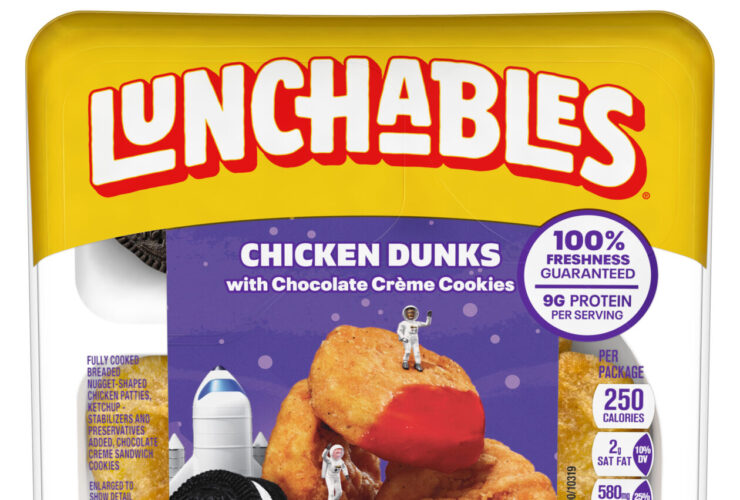Pregnancy is a transformative journey characterized by significant physical and hormonal changes in a woman’s body. Adequate nutrition during this period is vital for the mother’s and growing fetus’s health and development. While prenatal vitamins are commonly recommended to fulfill nutritional requirements during pregnancy, the question arises: can sea moss be safely integrated with prenatal vitamins to enhance maternal and fetal health? Let’s explore this topic further to understand its potential benefits and considerations.
Sea moss, also known as Irish moss, is a type of seaweed enriched with essential nutrients such as iodine, calcium, potassium, and Vitamin C. These nutrients support overall health, particularly during pregnancy, where maternal nutrition profoundly influences fetal growth and development.
On the other hand, prenatal vitamins are specially formulated supplements designed to provide essential nutrients crucial for a healthy pregnancy. They typically contain vital vitamins and minerals like folic acid, iron, calcium, and Vitamin D, which are fundamental for maternal and fetal well-being.
Can You Take Sea Moss and Prenatal Vitamins Together?
Yes, you can take sea moss and prenatal vitamins together during pregnancy. Combining sea moss, rich in essential minerals and vitamins, with prenatal vitamins offers a broader spectrum of nutrients crucial for maternal and fetal health. Sea moss provides nutrients like iodine for thyroid function, calcium for bone health, and Vitamin C for immune support, complementing the nutrients found in prenatal vitamins.
This combination supports optimal fetal development, enhances immune function, and promotes digestive health during pregnancy. However, it is essential to consult with your healthcare provider before incorporating sea moss or any new supplement into your prenatal regimen. Additionally, ensure the sourcing of high-quality products, follow recommended dosage guidelines, and monitor for any allergic reactions to maximize the benefits and safety of supplementation during pregnancy.
Benefits of Sea Moss and Prenatal Vitamins for Pregnancy
When taken together, sea moss and prenatal vitamins can complement each other, offering a comprehensive array of nutrients necessary for a healthy pregnancy:
- Nutrient-Rich Support: Sea moss provides essential minerals and vitamins, including iodine for thyroid function, calcium for bone health, and Vitamin C for immune support. Pairing sea moss with prenatal vitamins ensures a broader spectrum of nutrients crucial for maternal and fetal health.
- Enhanced Immune Function: Both sea moss and prenatal vitamins contain immune-boosting nutrients like Vitamin C and antioxidants, which help strengthen the mother’s immune system, offering protection against infections during pregnancy.
- Optimal Fetal Development: Combining nutrients from sea moss and prenatal vitamins supports optimal fetal growth and development, reducing the risk of developmental abnormalities and ensuring a healthy pregnancy outcome.
- Improved Digestive Health: Sea moss is fiber-rich, aiding digestion and alleviating common pregnancy discomforts such as constipation. Combined with the digestive support provided by prenatal vitamins, it promotes overall gastrointestinal well-being during pregnancy.
Considerations and Recommendations
While sea moss and prenatal vitamins offer numerous benefits for pregnancy, it’s crucial to approach their consumption with caution:
- Consultation with Healthcare Provider: Before incorporating sea moss or any new supplement into your prenatal regimen, consult your healthcare provider. They can provide personalized guidance based on your health status and dietary needs.
- Quality and Safety: Ensure sourcing high-quality sea moss and prenatal vitamins from reputable suppliers to minimize the risk of contamination or impurities. Look for products that have undergone third-party testing for purity and potency.
- Portion Control: As with any supplement, moderation is key. Follow recommended dosage guidelines provided by your healthcare provider or the product manufacturer to avoid excessive intake, which can be harmful during pregnancy.
- Monitoring for Allergic Reactions: Some individuals may be allergic to seaweed or iodine, so monitor for any adverse reactions after incorporating sea moss into your diet. Discontinue use and seek medical advice if you experience any allergic symptoms.
Conclusion
Incorporating sea moss alongside prenatal vitamins can offer additional nutritional support for a healthy pregnancy. By harnessing the nutrient-rich properties of sea moss and the targeted supplementation provided by prenatal vitamins, expecting mothers can optimize their nutritional intake and support optimal maternal and fetal health. Remember to prioritize quality, consult your healthcare provider, and practice moderation when incorporating these supplements into your pregnancy diet for the best outcomes.
References
- WebMD. Health Benefits of Sea Moss. Retrieved from https://www.webmd.com/diet/health-benefits-sea-moss.
- Mayo Clinic. Prenatal Vitamins: Why They Matter, How to Choose. Retrieved from https://www.mayoclinic.org/healthy-lifestyle/pregnancy-week-by-week/in-depth/prenatal-vitamins/art-20046945.
Was this helpful?

Joseph Emb, RDN
Founder of StyleVitally.com | Registered Dietitian & Wellness Advocate
What I Cover:
I’m passionate about connecting nutrition science and everyday wellness to help people live healthier, more vibrant lives. I write about evidence-based nutrition, mindful eating, sustainable lifestyles, and holistic well-being at StyleVitally.com.
My Background:
The University of Texas in Austin, where I earned my Dietetics diploma, laid the groundwork for my nutrition and health career. My training and hands-on experience taught me the science and art of using nutrition to enhance health and well-being.
Professional Journey:
I’m an RDN with lots of experience. I’ve helped people seeking tailored nutritional recommendations in clinical settings and community outreach programs. My constant learning and professional development ensure that my recommendations are always based on the latest evidence.
Ethical Commitment:
My practice prioritizes integrity. My content is transparent and objective, following the most significant ethical standards. I can give my audience unbiased advice because I’m not affiliated with food businesses or industry associations. I want to help people make informed health decisions that match their values and ambitions.
Join Me on the Wellness Journey:
Join me on the path to vitality and well-being, whether facing nutritional issues, seeking sustainable lifestyle changes, or simply wanting a better, happier you. We’ll discover how diet, mindfulness, and holistic well-being can maximize your potential.









